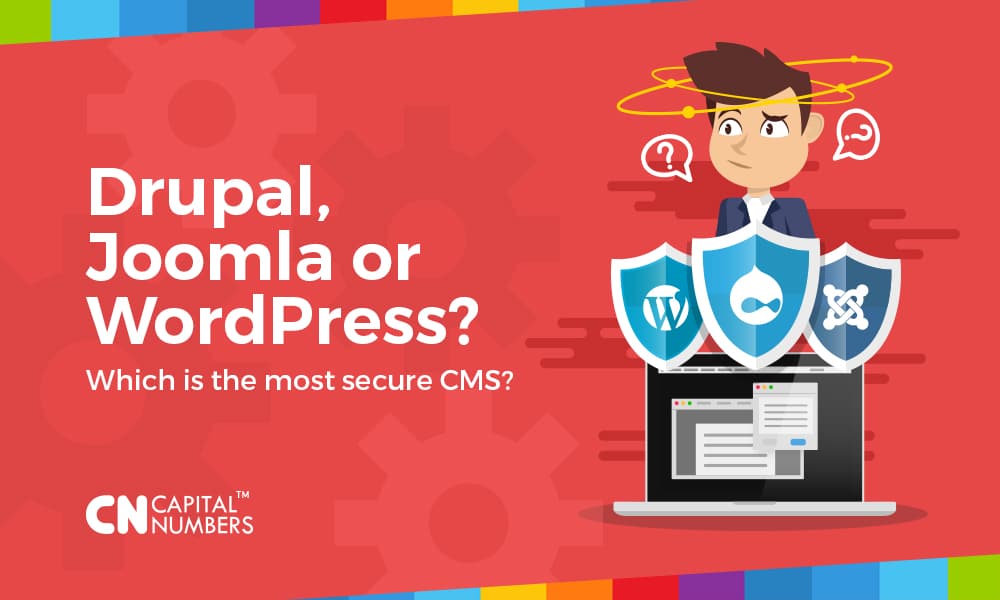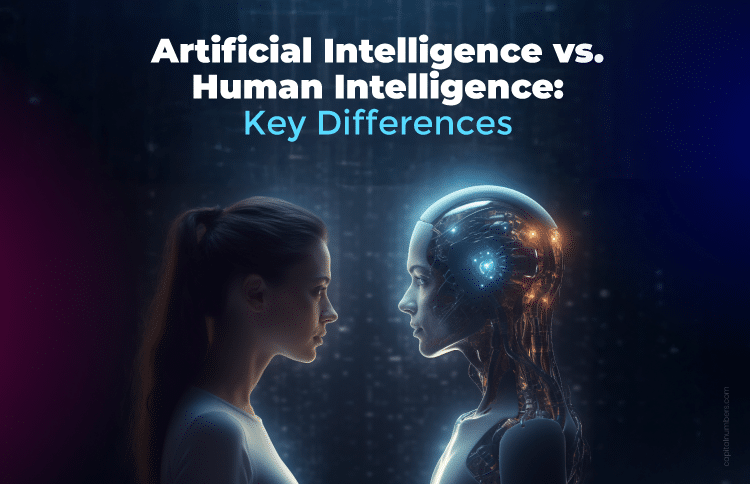Drupal, Joomla or WordPress? Which CMS Is the Most Secure?
Table of Contents
When you are thinking of building your own website, the first step is to choose the right road for development. A PHP-based Content Management System (CMS) not only offers an easier development but also ensures better maintenance. A PHP CMS allows website owners to manage the content on their website without having to rely on a developer for everything. Once the website is set up it is easy to log in and makes any required changes using the functions of the system.
The three most popular PHP CMS that come to mind while you consider building a website is Drupal, WordPress, and Joomla. Although all three of them offer a wide variety of useful features, the security feature is one of prime concern and one that website owners really want. In this post, three most popular PHP CMS will be compared on the basis of the security level each system offers. If you are confused about choices like Drupal, Joomla, and WordPress – and you don’t know which one is the most secure system for building your website, you will be able to come to a conclusion by the end of this post.
Drupal
Drupal has always proved that it is very serious when it comes to security. The secure framework of Drupal is designed to handle the gravest of internet vulnerabilities. Tough security has the stability to prevent the website from crumbling under vulnerable circumstances. The security of Drupal is so strong that many leading brands, corporations, and even governments rely on Drupal to build critical applications and websites.
Being one of the biggest developer communities across the globe, Drupal ensures a faster response to any issues supported by a dedicated security team and efficient service provider system. Robust coding standards and a diligent process of community code review also help in preventing many security issues. Here are some features that make Drupal the undeniable winner when it comes to cybersecurity.
- User Access Control
Drupal offers Granular User Access Control which allows the administrator to have complete control over who can access their website. The power to allow someone to see or modify the website lies with the administrator. They can create a role for the user and provide permission for the specific purpose.
- Access
If you are worried about the safety of your login passwords, you should not. This is because passwords for Drupal accounts are encrypted well before they are stored in their database. Drupal supports a wide range of password policies like complex, minimum length, expiration, etc. Standard authentication practices in the Industry, which include 2-Factor Authentication and SSL, are also supported by Drupal. Single Sign-on systems including LDAP, SAML, OpenID, and Shibboleth are combined with Drupal in its production applications.
- Database Encryption
You can configure Drupal for strong database encryption required for a high-security project. In case you don’t want to encrypt the entire database, Drupal allows you to do so at a very granular level. This is helpful if you want to protect specific information.
- Brute Force Detection
Drupal security is strong enough to detect and provide protection against the brute-force attacks on passwords. This is done by limiting the login attempts from a single IP address over a definite period of time. The administrative interface can view all the failed attempts. You can also use Drupal configuration to ban individual IP’s and range of addresses.
- Malicious Data Entry
Drupal’s API ensures that every data entered into the database is validated and scrubbed well. CSRF (Cross Site Request Forgery) attacks are prevented as tokens are injected into forms when they are generated.
- Reduction of DoS Attacks
Denial of Service attacks is reduced due to the extensible cache layer that is preconfigured with CSS caches, javascript, and basic page. Performance technologies like Redis, Memcache, etc can be deeply integrated with the system. The individual components are cached effectively. A common feature is a granular expiry. A multi-layered cache framework is suitable for a website that receives high traffic.
Apart from the above-mentioned security frameworks, Drupal security features address all of the OWASP top ten security risks. A dedicated security team ensures doesn’t just fix security problems, but also explains the vulnerabilities by publishing advisories.
WordPress
WordPress is one of the most popular PHP CMS. It has a security team that consists of security researchers and lead developers. Potential vulnerabilities can be signaled to the security team which is acknowledged upon receipt. Further, plans to solve the issues are outlined after the vulnerability is verified and severity is determined.
WordPress offers Open Web Application Security Project (OWASP) top 10 lists addressing. The top ten lists are prioritized together with the estimates of exploitability and detectability. The APIs that WordPress offers helps in strengthening the core system. Protection against unauthorized injections and password, along with the safety of user-supplied, data is offered. A direct object reference is provided and also prevents unauthorized requests through its access control system. With security configurations limited to a single authorized administrator, configuration errors are minimized. Just like Drupal, account passwords are salted and hashed to ensure the safety of sensitive data. WordPress provides protection against CSRF threats.
Joomla
Joomla offers a wide range of security extensions that helps in providing protection against attacks. Joomla is a fast growing content management system. There are many steps that you must take to protect your Joomla site. Joomla advises its users to secure their websites by gaining experience and getting help from those who are experienced.
You can conclude from this comparison that Drupal does take solid care of the security of its users. Although Joomla and WordPress are serious about security as well, Drupal is suitable for the websites that require tough security. This is the reason that many government websites trust Drupal for website development. The system updates help to provide better protection, so make sure you keep your PHP CMS updated. Joomla and WordPress use commercial plugins that are known to be insecure. Drupal’s dedicated team of security ensures better security.














